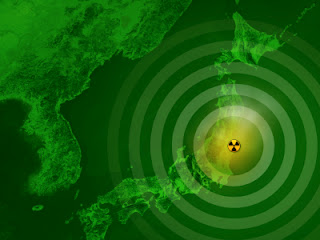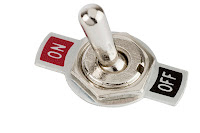Surprise! U.S. thinks nuclear energy is a good idea
 A Gallup poll shows 57% of Americans favor its continued use
A Gallup poll shows 57% of Americans favor its continued useA poll published by the Gallup organization shows that a majority of Americans continue to favor the use of nuclear energy as one of the ways to provide electricity for the U.S. According to the poll, the 57% who favor nuclear power this year is identical to the percentage measured in early March 2011 just before the Fukushima accident.
The data come from Gallup’s annual environmental survey, conducted March 8-11, 2012. The history of the poll’s results are that when it was first taken in 1994, exactly the same percentage felt positive about nuclear energy. They also felt it was safe. The highest number, 62% ,occurred in 2010 and the lowest, 46%, in 2001.
The Gallup organization said in its report the extensive news coverage of the Fukushima crisis does not appear to have had a long-term effect on Americans’ attitudes about nuclear energy. Although there may have been a short-term shift in perspectives, the Gallup report notes that attitudes now are almost identical to where they were before March 11, 2011.
Other highlights of the report include
Men and women have sharply different views of nuclear energy with men favoring it by 72% to 27% but 51% of women oppose it with just 42% in favor.
Republicans favor nuclear energy with 65% in favor but Democrats are split with only 50% in favor.
Age wise persons age 18-49 favor it by 53% and those 50 and older by 61%.
The poll notes that the economics of cheap natural gas are more likely to influence decisions to build new reactors in the near term. That’s true especially in deregulated states.
What about California?
The published information about poll does not break down the data by state. Readers might think, well the national data are interesting, but what about the arch druids of green political correctness which rule in California?
And isn’t the statehouse occupied by a political leader who has some far out ideas that resulted in the label “Gov Moonbeam”? A recent development there might surprise many people.
According to the DowJones News Wires and MarketWatch, Gov. Jerry Brown says he may be warming up to the idea of building new reactors in California. Brown told a conference sponsored by the Wall Street Journal March 23 that while there are no proposals for new nuclear reactors in California, he might consider one it it came up.
“Nuclear has issues but it is good for greenhouse gases. Nuclear is serious technology that serious people have to talk about.”
Brown’s comments probably come as a surprise to two groups. The first is the Fresno Nuclear Energy Group which wants to build two new Areva 1,600 MW EPRs in the heart of the California agricultural region. The second is the Sierra Club and other anti-nuclear organizations like NRDC which have aggressively pushed continuation of the state’s now three decade old ban on new reactor projects.
Gov. Brown is good at making speeches. Maybe he should pay more attention to what’s going on at home than going to business conferences.
NRC ready to issue licenses to Scana
Regulatory agencies do not subscribe to a theory of political momentum. Each decision is seen as a “one off” based on its merits. However, many observers see the upcoming decision scheduled for this Friday March 30 as exactly that phenomenon.
It is expected the U.S. Nuclear Regulatory Commission (NRC) will award Scana Corp. a license to build and operate two new Westinghouse 1,100 MW AP1000 nuclear reactors at a site on South Carolina. The V.C. Summer Station is located in Cayce, SC, about 25 miles northwest of Columbia.
The vote is the second is a series with the NRC issuing a permit to build and operate two similar reactors to Southern at a site in Georgia. Both states are regulated markets and support CWIP which allows the utilities to charge the rate base for the cost of the reactors as they are being built. This mechanism is a key factor which buffers the new build from the competitive threat of very low prices for natural gas.
 Japan likely to restart reactors
Japan likely to restart reactorsA common sense signal from an unusual source suggests that Japan may move more quickly than anticipated to restart the 54 reactors that are now shut down. Cameco, a Canadian mining firm which is a major global supplier of uranium, says that it approached Japanese utilities to see if they wanted to sell back the uranium they had contracted for these power stations. The assumption, says Cameco CEO Tim Gitzel, is that if the Japanese are planning an indefinite shutdown of the reactors, they won’t need the fuel.
That turns out not to be the case. According to Gitzel, as reported by Reuters March 26, there are two factors which convince him the Japanese will restart their closed reactors and sooner rather than later.
First, the Japanese utilities refused to sell back their uranium to Cameco. Second, Japanese investors in Cameco mines, and other Canadian exploration projects, have retained their positions. They are not backing away from locating new supplies.
Cameco also noted that another reason is that it sees strong demand for uranium from China, India, and South Korea. Japan knows that while there is an over supply of uranium now, that might not be the case in a few years. China is building 40 new reactors by the end of this decade. Gitzel says overall by 2020 there will be 96 new reactors in operation worldwide.
You can return to the main Market News page, or press the Back button on your browser.

